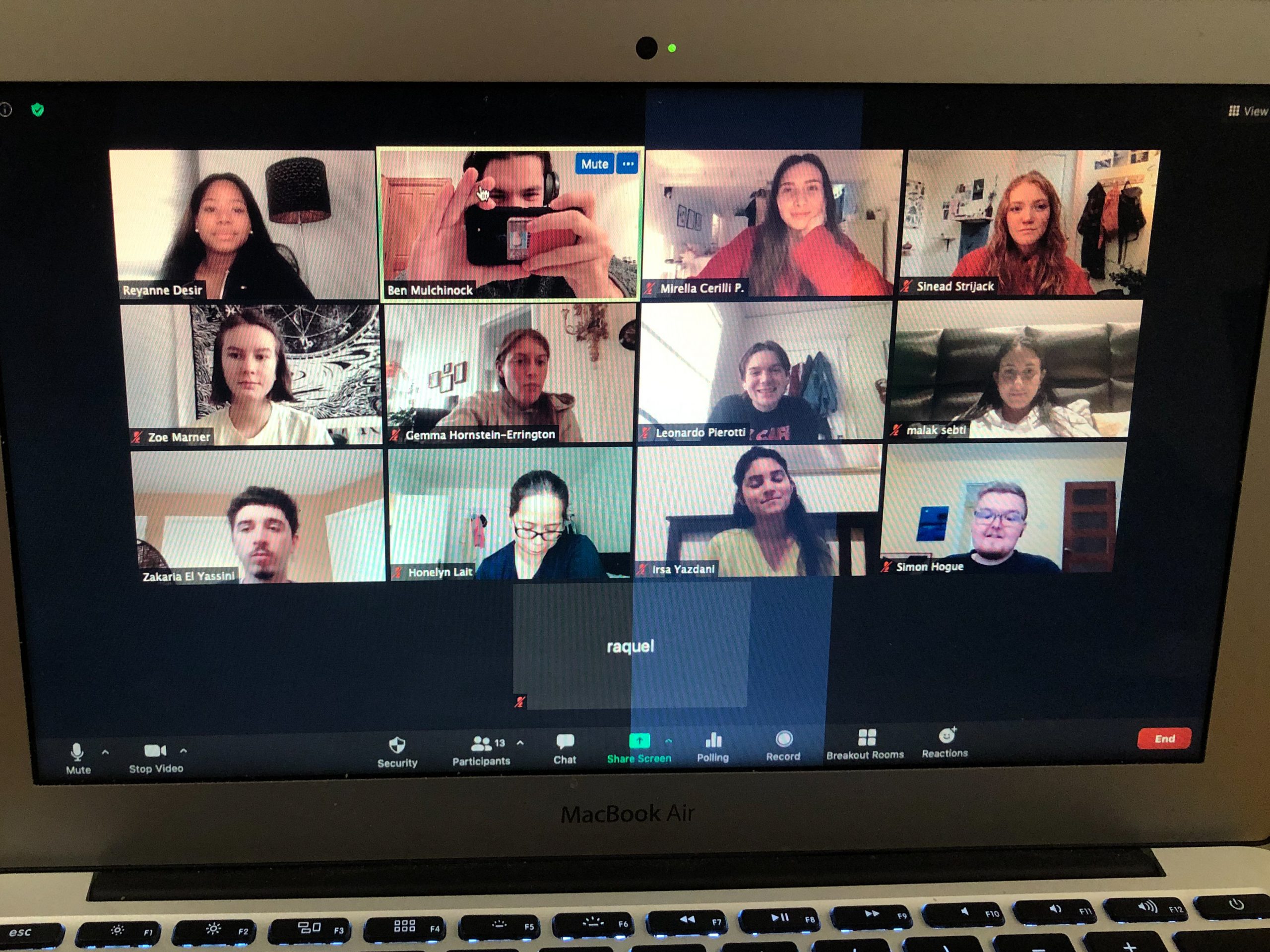Due to the decline of traditional belief in male superiority and female inferiority, Canada’s mentality regarding masculine and feminine roles has greatly changed. Thanks to women’s suffrage and feminist movements, the oppression of women has significantly decreased, and women are receiving much more freedom than they did centuries ago. However, while International Women’s Day on March 8 proclaims the gender barriers women have broken down and calls for celebration, it also reminds us that we must keep working together to make gender equality a reality in our country.
At Concordia, the Simone de Beauvoir Institute is a firm believer in the education of women. Chantal Maille, a Women’s Studies professor, says, “we’re all for a progressive feminist agenda.” Despite unity for the cause, that one word still instills “fear” in some people. “The f-word,” laughs Arlene Steiger, the co-ordinator of Women Studies at Vanier College. “Some people think this means women want to rule the world. The media has portrayed feminism negatively. However, anyone who knows anything about feminism knows that’s not true.”
Feminism is the belief that men and women are equal and thus should be valued equally and have equal opportunities. The most mainstream, popular, and moderate of all the feminist theories is liberal (egalitarian) feminism that wants a just and compassionate society in which freedom flourishes. Equal opportunity and freedom will provide the most positive environment for everyone to achieve the best of their potential.
Lydia El-Cherif, a 20-year-old creative writing and liberal arts student at Concordia, who is a feminist agrees with Steiger. “They think feminism is an anti-man movement, which it’s not. Being a feminist is about letting each woman decide what happiness is on her own terms. Whether that’s staying at home and having children or not having children and doing something else. It’s respecting women’s decisions and giving them the opportunity to make these decisions.”
Most men are in agreement with this as well. Patchen Barss, a 32-year-old features writer for the discovery page of The National Post, believes that “there is a natural progression towards egalitarianism. However, western society still makes things a lot easier for men. Women don’t earn as much as men for doing the same work and have to work harder to land a promotion. There has been a great deal of progress. A self-sufficient woman is less of a rarity than it once was, but I don’t have the sense that men and women have equal opportunities. Inequality implies exploitation, and exploitative societies are not as successful as cooperative ones.”
The lack of co-operation is still predominant in Canadian homes. Typically a married woman performs a double shift: one for paid work in the labor force and the other unpaid in the home. Sexual division regarding domestic labor has remained essentially unchanged even though today men are more involved with helping out.
In families with children, women spend more than twice as much time on domestic work than men. Sadly, people forget that marriage is a partnership. An excellent way though to strive towards domestic equality is to socialize children to do similar chores and to teach cooperative, and helpful attitudes, and belief in equality at an early age.
Joel Carriere-Longley, a 19-year-old LaSalle resident, helps his mom with cooking, cleaning, and baby-sitting his younger brother. “My mother always taught me to help out, so I learned. If it makes a woman happy, I’ll do it,” he smiles. “When I get married, I believe in helping out which is the right thing to do. I would raise my son to do the same stuff as my daughter, that way he won’t be lazy and will help out his wife.”
Women’s achievements
One important result achieved by the women’s movement was women getting the right to vote in 1918 (in Quebec, it was 1940) and being considered persons under the law in Canada in 1929. Another achievement was concerning the freedom to choose what was most important in a woman’s life. During the first half of the 20th century, Canadians believed in the centrality of marriage and motherhood for women. Author Betty Friedan though helped inspire an intense scrutiny of the gender role expectations and to acknowledge the increasing quest for personal freedom. Regarding the trapped housewife phenomena, in 1963, she wrote how the increasing numbers of women who wanted more than their husband, kids, and home could not be ignored.
Both men and women are now more likely to marry between 25 and 34 years of age. Statistics Canada (1993) stated how “in 1992, the average age at first marriage was 26.0 up from 22.6 years in 1971.” One of the biggest reasons that marriage is being delayed is because more women are choosing to further their education and establish careers. It was not until 1988 that women’s university enrollment surpassed men’s. Now they currently make up the majority of full-time students in Canadian universities. In 1992-93, 52 per cent of all full-time students were female compared to 40 per cent in 1972-73. Out of the 178,116 university degrees granted in 1996, women received 103,010 while men received 75,106 degrees.
By 1996, 57 per cent of women were in the labor force as opposed to 24 per cent in 1951. Today engineering, mathematics, applied and physical sciences are still largely dominated by men while educational, nursing, and clerical professions are still largely dominated by women. Almost 70 per cent of working women are employed in teaching, nursing and health-related occupations, clerical positions, sales, and services. However, women have broken down the high-salary, prestigious, and traditional “male” professions such as medicine, law, and corporate management.
Although the so-called “female” professions are important, teaching and especially nursing and daycare are extremely underpaid and still have not received their deserved recognition. Whereas pay and employment equity focus on paying people for the work they do regardless of gender and to eliminate discrimination, equal pay for women is still to be established. Men still make more even though the wage gap in gender earning has gotten smaller. In 1996, women working full-time for an entire year still earned only 73 cents for each dollar earned by men (Statistics Canada, 1999). In 1996, single women earned 93 cents for every dollar earned by single men; married women only 69 cents for every married man’s dollar. While higher education narrows the gender wage gap, a woman with a university degree earns approximately $13,000 less than a man with the same degree.
Despite much progress, much more needs to be done. A core Canadian value is equality and fairness in a democratic society. If Canadians desire to reach gender equality, we must work together to get rid of existing inequalities. Besides gaining equal respect, there are other things El-Cherif says must happen. “Pay us equally! Stop treating feminists like weirdos…. We have to have a more realistic idea of women in the media. Even a good girl has to be skinny and attractive and that’s impossible for most women to replicate. Also get more women into parliament because we’re under-represented.”
Considering what it commemorates, International Women’s Day is an extremely important day for women. For many like El-Cherif, it is the awareness that women are still not being treated equally on a global scale. Her 19-year-old Biochemistry counterpart at McGill agrees. “Divided we fall, united we stand. If we all stand together, we can show how strong and powerful we are as women. We’re just as good as men,” says Ratna Samanta. For Maille, however, it is a way of realizing what has been accomplished and still has to be improved. She sees is as solidarity between both women and men.
One question remains though: can gender equality ever be reached? “You can only achieve equality through equality,” says Paolo Della Rocca, a 19-year-old history student at Concordia. “What I mean is that no extra rights should be given to either sex. When we consider everyone equal, then we will all be equal.”
Maille is not so sure. “For me, the notion of equality is highly problematic. With whom? We might fight for justice and freedom… I don’t think that equality can be attained between men and women if there is no equality between whites and blacks, natives and non-natives, etc. Equality goes beyond gender.”
The Simone de Beauvoir Institute is sponsoring three upcoming lectures. Laura Kipnis (Northwestern University) will speak on two nights: “Pornography and National Fantasy” on March 7 at 7 p.m. (Samuel Bronfman Building Atrium, 1590 Docteur Penfield Avenue) and “The Politics of Non-Monogamy” on March 8 at 4 p.m. (MU building, 2170 Bishop St., room MU-101). Kathy Ferguson (University of Hawaii) will be speaking on “Gender, Race, and Militarism: Are We All Israelis Now?” on March 11 at 7 p.m. (Atrium of the Bronfman Building, 1590 Cote-des Neiges).




Comments are closed.